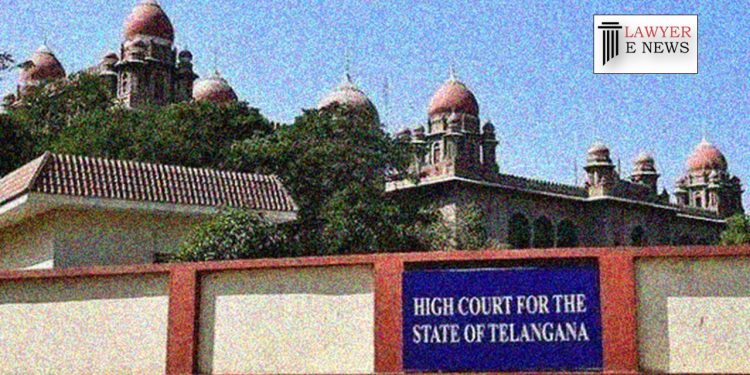-
by Admin
15 February 2026 5:35 AM



Justice K. Lakshman denies plea to quash FIR involving bribery and caste-based abuses; protects petitioner from arrest.
The Telangana High Court has dismissed a petition seeking to quash an FIR filed against a senior advocate accused of fraud and caste-based abuses. Justice K. Lakshman emphasized the gravity of the allegations, particularly the claims of bribery involving High Court judges, and highlighted the necessity of a thorough investigation. The court provided interim protection from arrest to the petitioner, Vedula Venkataramana, until the investigation concludes.
Respondent No. 3, a member of a Scheduled Caste, filed a complaint alleging that his community had been defrauded by the petitioner, their advocate, in a land dispute case. According to the complaint:
In 1982, Respondent No. 3’s community purchased land in Bowrampet village, Mechal-Malkajgiri District.
In 2005, third parties encroached on this land, prompting the community to hire the petitioner as their counsel.
The petitioner demanded and received Rs. 30,00,000/- as fees but failed to advance their case.
The petitioner allegedly assured the community of a favorable judgment in exchange for an additional Rs. 7,00,00,000/- purportedly to bribe High Court judges.
Subsequently, the petitioner did not appear in court and allegedly colluded with the opposition, receiving Rs. 25,00,00,000/- from them.
Upon demanding their money back, Respondent No. 3 faced caste-based abuses and threats from the petitioner.
The court examined whether a criminal complaint is maintainable when the complainant participates in an illegal act. Referring to precedents, the court affirmed that criminal proceedings are valid even if the complainant was part of an illegal agreement, emphasizing that cheating allegations hold regardless of the agreement’s legality.
Justice K. Lakshman highlighted the serious nature of the accusations, which implicate the judiciary’s integrity. “The allegation that money was obtained to bribe the judges of this Court casts a serious doubt on the independence of the judiciary and implies that justice is up for sale,” the court noted. Such severe allegations warrant a comprehensive investigation.
Given the gravity of the accusations and the absence of custodial interrogation needs, the court provided interim protection from arrest to the petitioner. The decision aligns with the Supreme Court’s stance that arrest should be a measure of last resort, especially in cases where pre-arrest would lead to a miscarriage of justice.
Justice K. Lakshman remarked, “The allegations levelled against the Petitioner are grave… Such serious allegations need to be investigated.” Furthermore, the judgment underscored, “An arrest brings ignominy and has the tendency to ruin a person’s reputation forever. Therefore, an arrest is permissible only when it is extremely necessary.”
The judgment extensively referenced various precedents to support its stance on the maintainability of criminal complaints involving illegal agreements and the cautious exercise of power under Section 482 CrPC. The court reiterated that protection from arrest under Section 482 CrPC can be granted in appropriate cases, especially where Section 438 CrPC is not applicable due to the nature of the alleged offences.
The Telangana High Court’s decision underscores the judiciary’s commitment to upholding the law and ensuring thorough investigations into serious allegations. By protecting the petitioner from arrest, the court balances the need for justice with safeguarding individual rights against premature punitive actions. This ruling sets a significant precedent in handling cases involving severe allegations against legal practitioners and the judiciary.
Date of Decision: 24-06-2024
Vedula Venkataramana vs. The State of Telangana
